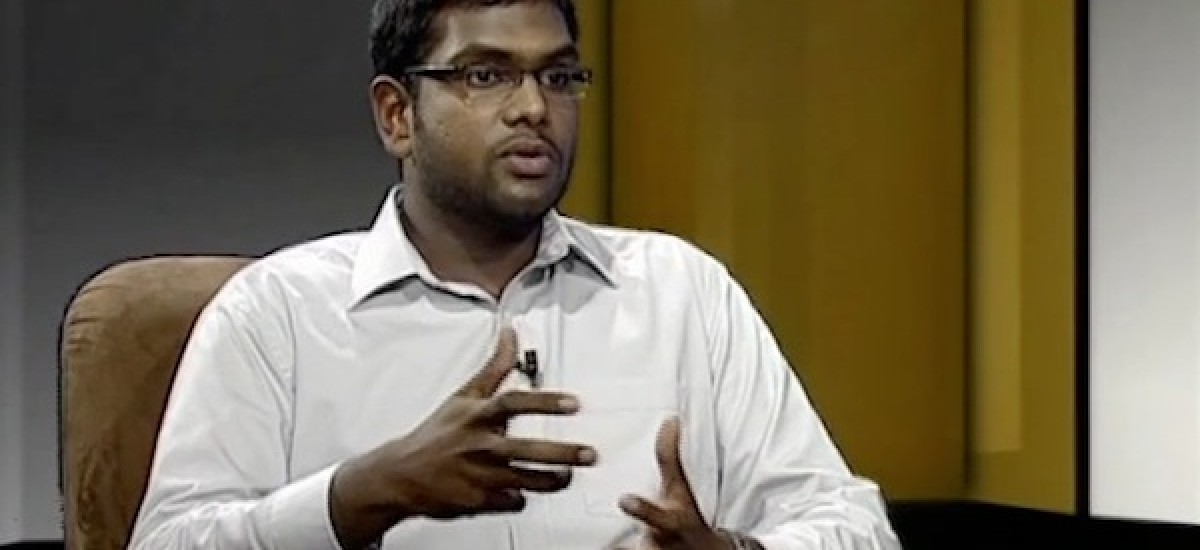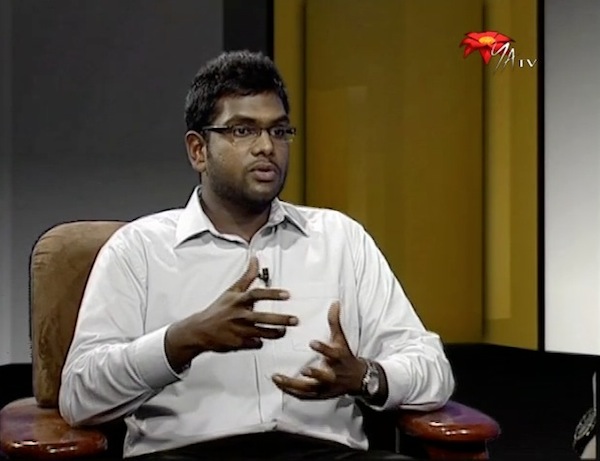Anushka Wijesinha is a Research Economist at the Institute of Policy Studies of Sri Lanka and is one of the most prominent voices in Sri Lanka today championing innovation.
We begin by Anushka explaining what innovation means to him in a Sri Lankan context, and why it is so important to support it in post-war Sri Lanka. In talking about innovation as a system, he talks about the differences between Research and Development and innovation. Anushka is then asked whether he sees enough of that which he champions and sees as innovative policies, products and practices in Sri Lanka today.
We then talk about the nature and indeed crisis within Sri Lanka’s tertiary education system – from ossified curricula to outdated pedagogy – as stymieing the growth and potential of innovation. Anushka then looks at how failure can be instructive for innovation, and whether cultures and countries that embrace failure are more innovative than those, like Sri Lanka, which censure and look down on those who fail. Talking about the culture and context of fear that haunted Sri Lanka for 27 years during war, and still endures, Anush looks at whether there is any positive correlation between innovation and societies that are more democratic as opposed to more autocratic or authoritarian regimes.
Anushka gives a number of examples of innovation from across Sri Lanka that addressed social problems in communities, as opposed to inventors and innovators from Sri Lanka attempting to build the next Apple. Referring to a piece written by Anushka looking at the value of merely adopting innovative practices of other countries to benefit economic growth, he is asked whether merely copying constitutes innovation, or whether innovation is more about adaptation.
We then talk about how an individual like Suranga Chandratillake, President and Chief Strategy Officer of Blinkx.com could contribute to strengthening Sri Lanka’s innovation, and what it would take for the country to attract back into our shores individuals like him in the diaspora.
We then talk about what the Government of Sri Lanka has done, and is doing to support innovation in Sri Lanka, and how strategy documents drawn up in this regard are being mainstreamed into policy making, as well as what more needs to be done. We also talk about the need for more and better private-public partnerships in support of innovation.
We end the programme by looking at the significant corpus of work Anushka, IPS and others have already produced on innovation, and why this isn’t more widely known both within and outside the country. We talk about how success stories of innovation can be more widely promoted, and how these stories can in turn strengthen innovation in the country, and the investment in all areas needed for it.


